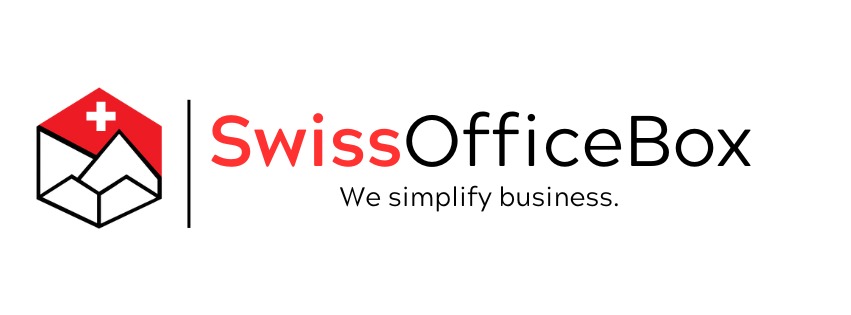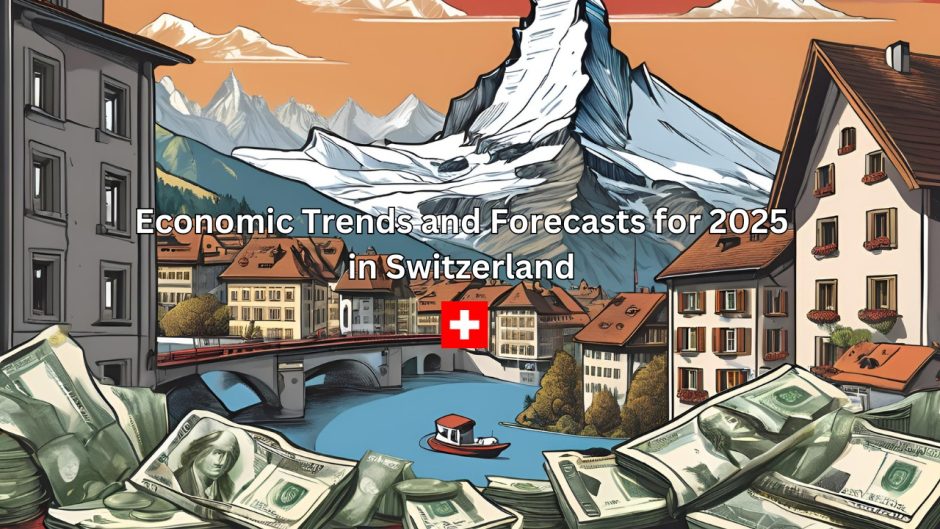Economic Trends and Forecasts for 2025 in Switzerland
Switzerland, known for its economic stability and financial power, is facing a series of challenges and opportunities in 2024 that will define its economic direction for the year 2025. With an economy closely tied to international markets, top financial sectors, and a favorable tax system, Switzerland remains a benchmark for investors. Here are some key economic trends and forecasts to watch for the upcoming year:
Moderate GDP Growth
In 2024, Switzerland’s economy experienced moderate growth, with a stable GDP despite global slowdowns. For 2025, continued moderate growth is anticipated, with estimates ranging between 1.5% and 2%. This growth will primarily be driven by external demand for exports, particularly from the pharmaceutical and technology industries, which play a crucial role in the Swiss economic structure.
Inflation Trends
Inflation, which has risen in recent years due to energy and logistical crises, is expected to stabilize in 2025. The Swiss National Bank (SNB) has implemented strict monetary policies to control inflation, maintaining high-interest rates. The estimated inflation for 2025 is around 1.8%, a level considered manageable by Swiss authorities. This could help maintain consumers’ purchasing power without overburdening businesses.
Labor Market and New Challenges
Switzerland enjoys a low unemployment rate of around 2.2% in 2024, one of the lowest in Europe. For 2025, a slight increase in demand for labor is anticipated in sectors such as information technology, healthcare, and scientific research. Additionally, the migration of talent from Eastern Europe and other parts of the world will continue to play a significant role, although Swiss companies will need to adapt their recruitment strategies to attract qualified specialists in a competitive market.
Sustainability and Green Investments
In the coming years, Switzerland will place increasing emphasis on investments in sustainability and green energy solutions. The Swiss government has set ambitious carbon emission reduction targets, and companies are encouraged to adopt eco-friendly practices. In 2025, a rise in investments in renewable energy, particularly solar and wind, is anticipated, supported by government initiatives and growing demand for green solutions.
Banking Sector and Financial Regulations
Switzerland remains an important global financial center; however, the banking sector will continue to face strict regulations, both domestically and from the EU. In 2025, Swiss banks will need to adapt to new regulations concerning data privacy and financial transparency requirements. This could pose challenges but also opportunities for institutions that quickly adjust, utilizing modern financial technologies to enhance their services.
Technology and Innovation: Engines of Economic Growth
Technological innovation will continue to be a key pillar of the Swiss economy in 2025. The technology sector, particularly related to artificial intelligence, fintech, and biotechnology, will attract new investments. The Swiss government supports innovative initiatives through funding and dedicated programs, and the startup ecosystem in Switzerland will contribute to economic development through cutting-edge products and solutions.
Conclusion
Switzerland enters 2025 with solid economic prospects, backed by moderate growth, political stability, and strong commitments to sustainability and innovation. Although global challenges such as inflation and energy crises continue to exert pressure, the Swiss economy is in a favorable position to meet these challenges and continue to thrive. It remains to be seen how companies and the government will collaborate to maintain Switzerland’s competitiveness on the global stage.



